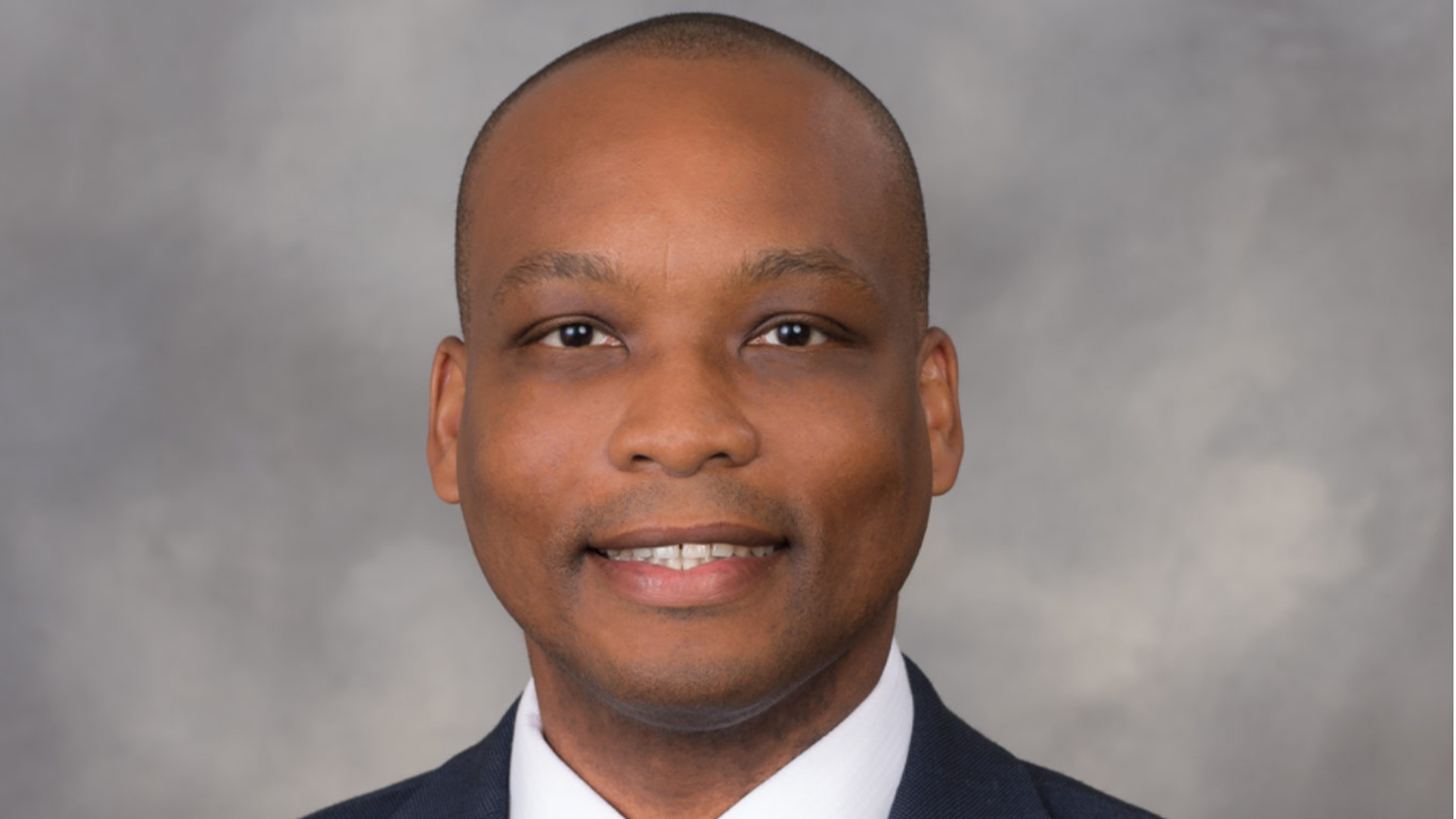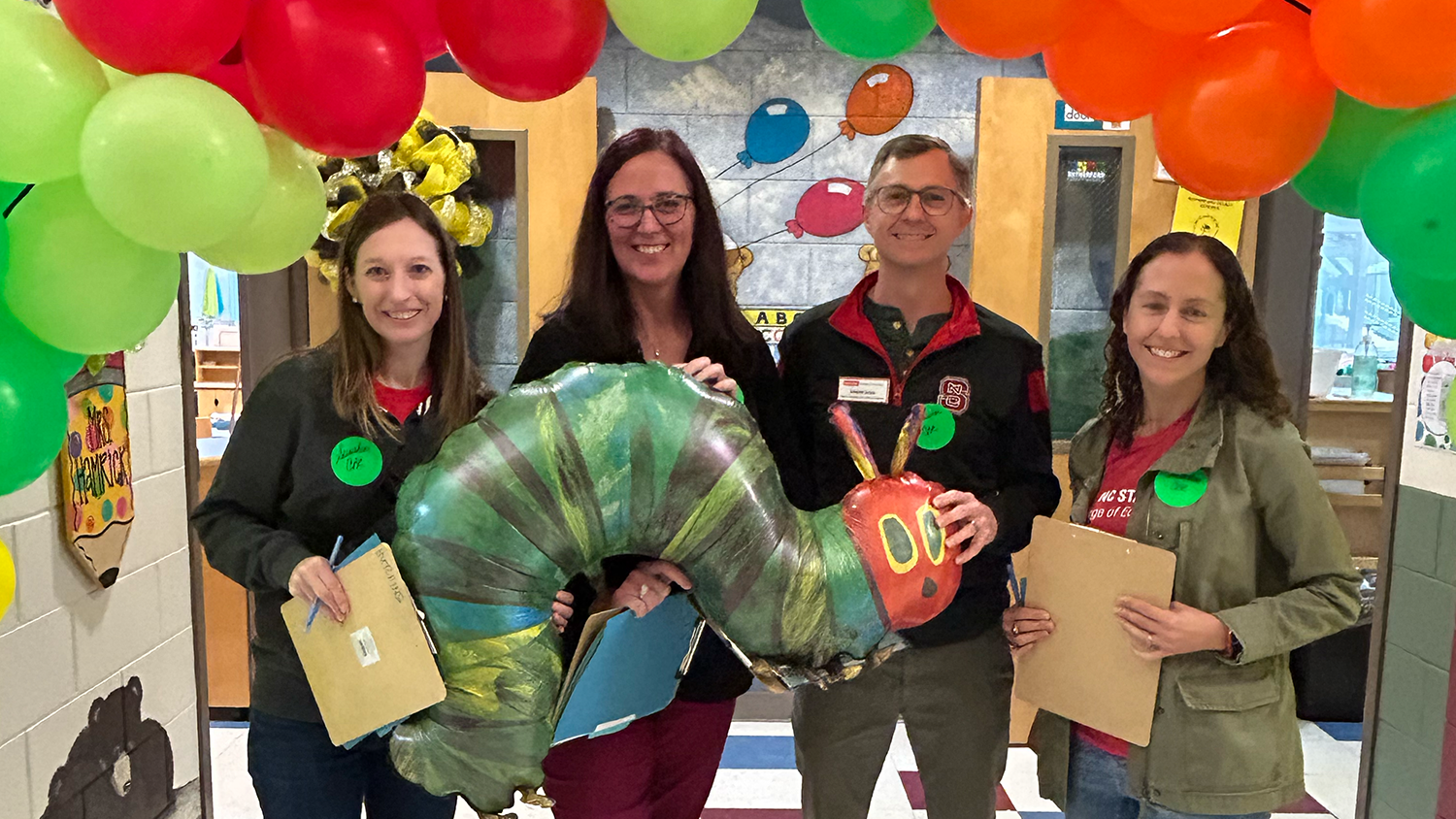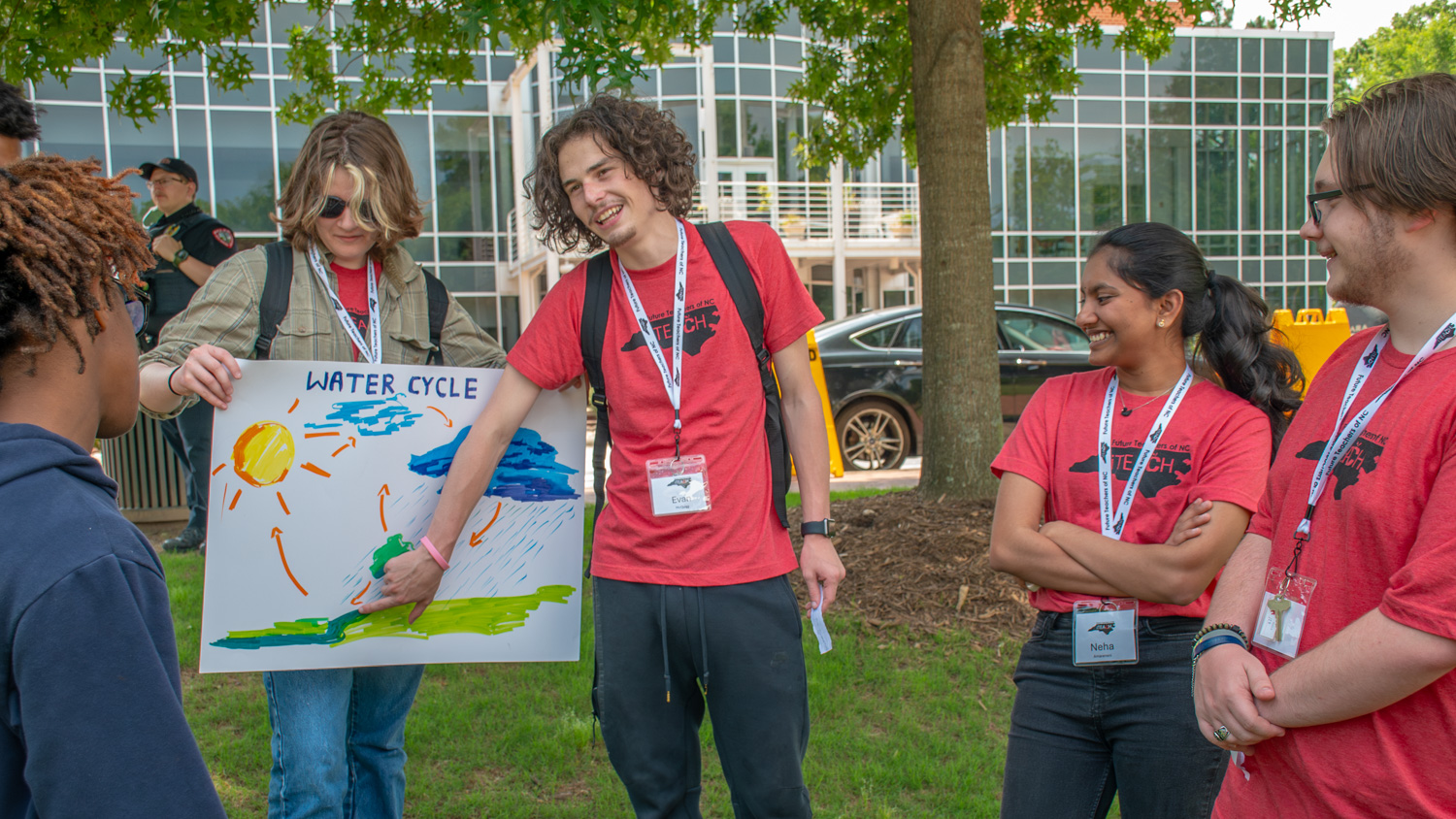Broward College President Gregory Haile During His Dallas Herring Lecture: ‘We Need to Make it Impossible for Every Resident, Every Child and Every Adult Not to Realize the Opportunity for Postsecondary Education’

As a child who grew up in a low-income neighborhood, Gregory Haile, president of Broward College in Florida, first heard the word “college” mentioned to him in conversation when he was in sixth grade. In contrast, Haile’s daughters were reminded of their college potential from the time they were in elementary school, as each classroom had the name of a college or university above the door.
The difference between these experiences, Haile said, underscores the importance of community colleges being proximate to the most challenged residents they are tasked with serving.
“We need to make it impossible for every resident, every child and every adult not to realize the opportunity for postsecondary education. We need to ensure that they know that their zip code of residence does not define their potential. We need to be proximate physically, socially and financially so that they know that we exist for them. Our closeness must be overt and it must be obvious,” Haile said during his 2021 Dallas Herring Lecture, hosted by the NC State College of Education’s Belk Center for Community College Leadership and Research.
During his lecture, entitled “Redefining Access: The Power of Proximity,” delivered on Nov. 16, Haile asserted that community colleges are obligated to develop innovative approaches to being proximate to the communities they are designed to serve in order to ensure equitable access to higher education.
Physical Proximity
Haile noted that the individuals that community colleges are designed to support are also those who typically have the fewest transportation options and the least amount of time due to work and parental commitments, Yet, community colleges expect these students to come to them.
Instead, Haile shared, community colleges should partner with local organizations and municipalities to use public facilities like recreation centers, libraries and even churches to host workshops, courses and outreach for high need communities. He cited Wake Technical Community College, which began offering non-degree, short-term courses at local YMCA facilities, and McDowell Technical Community College, which extended off-campus sites to provide community training and programs, as examples to follow.
“I would challenge you to look at these measures in detail and build on them both regionally and nationally. When we rely on the power of proximity, we as community colleges can uphold Dallas Herring’s educational vision of providing opportunity for all people,” he said.
Social Proximity
Community colleges do a good job of fostering a sense of belonging among students once they arrive on campus, but Haile believes that the feeling of belonging needs to begin long before that.
To acclimate residents with the idea of college, and to help people understand that they have college potential, Haile went door to door in some of the most challenged communities served by Broward College to introduce himself to residents, ask them to consider college and dispel myths they had about higher education.
He urged other community college leaders to follow in his footsteps.
“I challenge you to have a permanent presence in these communities. I challenge you to talk to those that you are missing and personally understand their needs and the myths that they believe, but that we know need to be busted. I challenge you to even knock on the doors of the members of your community to ensure that just like your child, just like your family member, they know that you and your institution stand ready to support them now and forever.”
Financial Proximity
When out to dinner one evening, Haile was approached by a woman he had never met, but who recognized him as the president of Broward College.
The woman shared with him that she had one course left to finish her degree, but did not have the $300 needed to afford the class and associated expenses. Haile said his team helped locate financial support for the woman, who aced the course and ultimately completed her degree.
For students on the brink like this woman, just one financial setback could be the difference between earning a degree or credential, or dropping out. It is therefore imperative, Haile said, that once community colleges encourage students to come through physical and social proximity, they provide the financial support students need to complete their studies.
“What will your institution do to break the history of poverty in your surrounding communities, to break the inadequate attainment levels, to ensure most challenged communities feel physically, socially and financially proximate with your institution,” Haile asked.
Watch Haile’s full lecture below.
- Categories:


